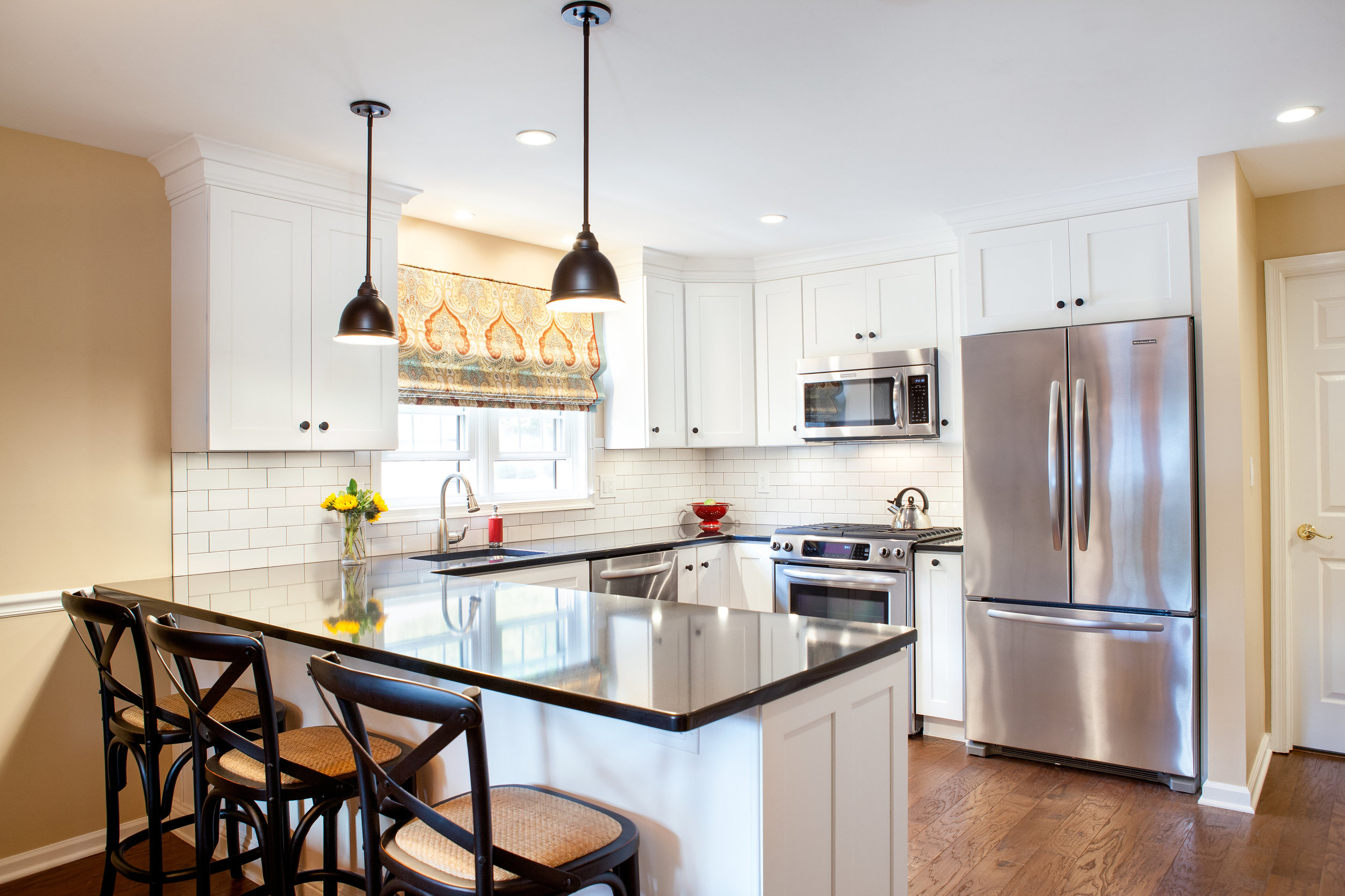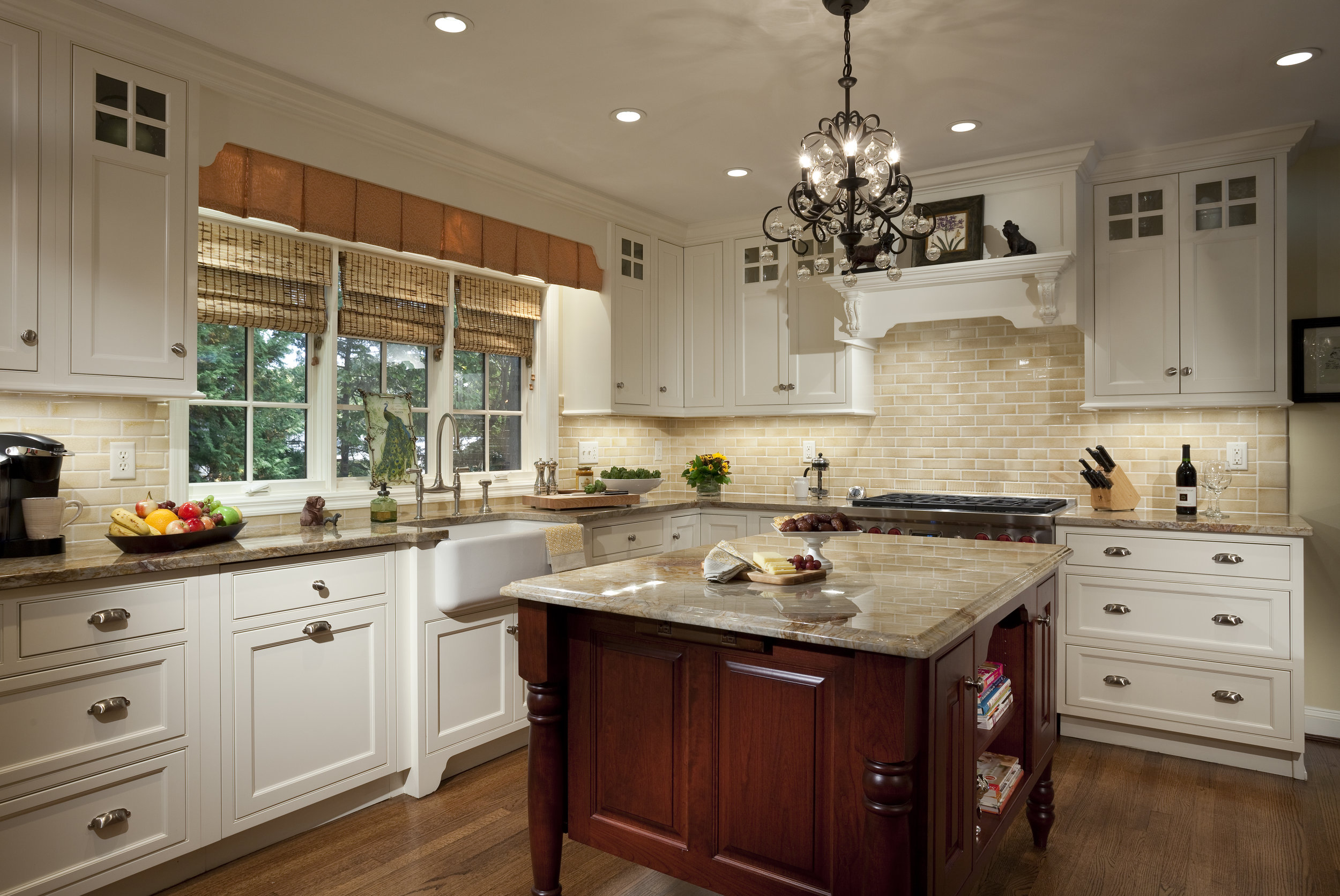Selecting your kitchen cabinetry is probably one of the most important decisions you will make as you begin the kitchen remodeling process. The style, color, finish, and function of the cabinetry are a reflection of your home and personality. Whether you choose a basic white shaker cabinet or a custom green antique finish – understanding the differences between Stock, Semi-Custom, and Custom Cabinetry is a must when shopping around.
Stock Cabinetry
Pros: Affordability, Short Lead Time
Cons: Limited Options, Limited Cabinet Sizes
Lead Time: 2-3 Weeks
*Lead Time may even be less depending on the location of the cabinet company in relation to the job site.
Stock Cabinetry is typically your least expensive type of cabinetry. The majority of Stock cabinet companies offer a limited range of door styles, finishes, and cabinet sizes. This allows the company to easily and quickly manufacture the cabinets resulting in a short lead time. Many times the cabinetry is already assembled and ready to ship once an order is placed. Typically, Stock cabinet companies will only offer full overlay style cabinetry. This is something to take into consideration when shopping. If you’re looking for inset cabinetry, you may need to search beyond Stock and Semi-Custom cabinetry.
by Robinwood Kitchens, 21st Century Stock Cabinetry
Semi-Custom Cabinetry
Pros: Affordability, Some Customization/Personalization
Cons: Limited Cabinet Styles/Finishes and Customization Options
(More Options than Stock cabinetry, Less Options than Custom cabinetry)
Lead Time: 4-6 Weeks
Semi-Custom cabinetry is a step above stock cabinetry in terms of cost and available options. The majority of Semi-Custom cabinet companies offer 15-30 different finishes and door styles. Due to the customer’s ability to mix and match, the lead time increases. In most cases Semi-Custom cabinetry is being made to order based on the design of your kitchen (vs. stock cabinetry that utilizes standard sizes). Depending on the company, they may offer certain modifications/options to customize cabinet sizes (ex. Off standard widths and depths). This is a major pro for Semi-custom cabinetry compared to stock cabinetry. However, keep in mind that you still may not be able to replicate that really neat design you saved on Houzz or Pinterest with a Semi-Custom cabinet company. The “semi” in Semi-Custom means exactly what it implies.
by Robinwood Kitchens, Hanssem Semi Custom Cabinetry
Custom Cabinetry
Pros: Unlimited Options, Complete Customization, Quality and Craftsmanship
Cons: Affordability, Lead Time
Lead Time: 8-12 Weeks
Custom cabinetry is the highest quality that you can use for your kitchen remodel. A Custom cabinet company will typically offer hundreds of door style and finish combinations. This allows for a truly personalized and custom experience when designing your kitchen. Beyond their standard offerings, many companies also offer a custom color service in which they can color match almost anything. Unlike Stock and Semi-Custom, Custom cabinetry has very little limitations when it comes to size and types of cabinetry. Typically, a Custom company will offer all types of cabinetry from full overlay to beaded inset. The biggest drawback will be affordability and lead time depending on your budget and time frame.
by Robinwood Kitchens, Plain & Fancy Custom Cabinetry
Besides the type and quality of cabinetry that you decide to use for your remodel, the functionality and efficiency of the design is also crucial. A really good kitchen designer can work with any type of cabinetry to make a functional and beautiful space. Read our blog post on Plain & Fancy’s website discussing why you should work with a kitchen designer.
Below is a great resource from Plain & Fancy custom cabinetry, which quickly defines and visually explains the difference between Full Overlay, Inset, and Beaded Inset. That’s another topic for another day!




